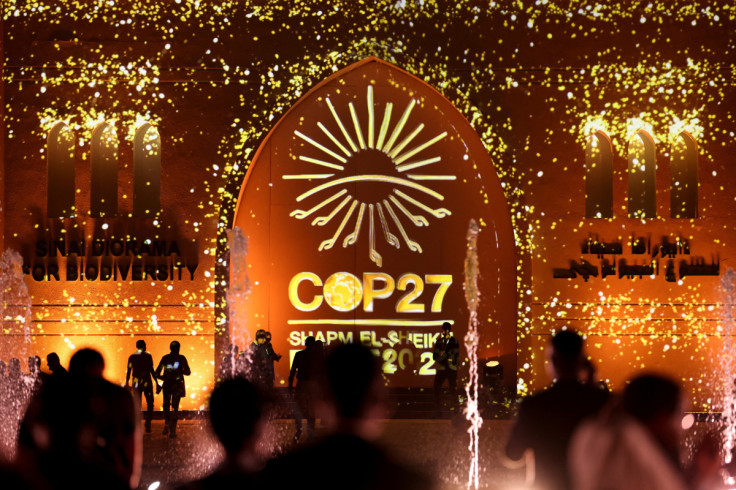COP27: Talks On Carbon Market Rules Off To Slow Start

Countries are far from agreeing on technical details for running global trading in carbon offset credits after one week of talks at the COP27 U.N. climate summit in Egypt, according to negotiators and observers, with delays threatening to blow a 2023 deadline.
Carbon offsets allow countries or companies to pay others to cut greenhouse gas emissions to offset their own. While companies are already trading carbon offset credits in private markets, the so-called Article 6 of the Paris Agreement would fix rules enabling countries to partly achieve their national climate targets by buying such credits.
The hope is that international rules backed by the entire world could attract billions of dollars into carbon-cutting projects, but countries have struggled for years to agree on what the rules should look like, what projects should be eligible, and how to ensure they are having a real-world impact.
Countries applauded each other at last year's climate summit in Glasgow for agreeing on broad principles governing carbon markets, breaking six years of stalemate. But that deal pushed trickier technical work to subsequent summits including the current COP27 meeting in Sharm El-Sheikh.
Already at COP27, countries have kicked to 2023 a decision on the rules for which types of projects can produce credits - from solar farms, to projects to avoid deforestation.
Countries will need to decide on those methodologies next year or risk running into a 2023 deadline when carbon-cutting projects registered under old U.N. rules have to apply to be part of the new system.
Applying to join the new system without knowing what rules will govern it would be difficult, said Pedro Martins Barata, a carbon markets expert observing the talks for the non-profit Environmental Defense Fund.
Drafts of the rules being discussed are still riddled with brackets that indicate which sections have yet to be agreed.
"Glasgow was a real breakthrough...it doesn't send a great signal if all the sudden they get caught up on the technical issues," said David Burns, a policy expert and negotiations observer for the non-profit World Resources Institute.
Voluntary carbon offset markets have struggled to gain trust for years. Campaigners including Greenpeace have criticized offsets as a figleaf for polluters who want to avoid cutting emissions.
"The door is still open for countries to meet their climate targets with accounting tricks rather than real action," said Gilles Dufrasne, an expert and observer at the talks at non-profit Carbon Market Watch.
But the nearly 200 countries at the U.N. summit could yet reach a decision on rules for country-to-country offset trades.
Key sticking points also include whether there should be a centralized body where trades are reported, a system the European Union supports. The United States prefers a more diffuse, decentralized system.
PRIVATE MARKETS
As countries struggle to agree, private markets with no global standards are moving forward.
Credits worth $2 billion traded in 2021 - almost four times the previous year - with around 500 million credits representing 500 million tonnes of CO2 equivalent changing hands, according to Ecosystem Marketplace.
How much carbon budget do we have left?
Private initiatives like the Integrity Council for the Voluntary Carbon Market (ICVCM) and the Carbon Credit Quality Initiative (CCQI) have drafted guidance on what they see as a high-quality carbon offset.
But debates continue on issues such as whether a credit should also take into account biodiversity and human rights.
A consensus at the United Nations would send a strong signal to private markets on what their standards should be, said Barata, who also co-chairs an expert panel for ICVCM.
"At COP27, we need to give companies and countries a clear process for how to implement carbon markets in a way that prioritizes transparency and social and environmental integrity," he said.
While, hundreds of companies and countries are relying on buying offsets to reach pledges to hit "net zero" emissions, a U.N. expert group last week warned that many of those targets rely too heavily on offsets to avoid the harder task of cutting outright emissions.
"Net-zero pledges depend far too heavily on carbon offsetting in either forests or agriculture," said Charles Canham, a senior scientist emeritus at the non-profit Cary Institute of Ecosystem Studies, pointing out those categories are particularly hard to verify.
© Copyright Thomson Reuters 2024. All rights reserved.











